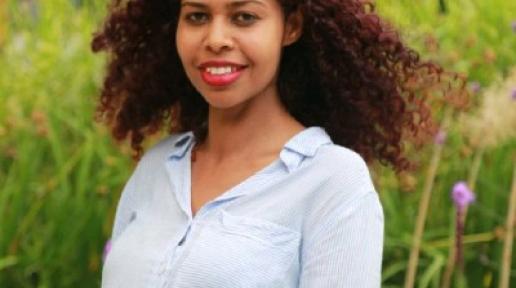Story
18 December 2025
Building Inclusion
Each year, the International Day of Persons with Disabilities reminds the world that inclusion is essential for equitable and sustainable development. The 2025 global theme, “Fostering Disability-Inclusive Societies for Advancing Social Progress,” calls on governments, institutions, and communities to create systems where children and adults with disabilities can fully participate and reach their potential.For me, this message is both global and deeply personal. I became a person with a hearing disability at 16, just as I entered Grade 9. The transition was sudden and life changing. I was fortunate to have supportive teachers and friends who cared about my wellbeing. Their encouragement kept me connected to school and community. Yet despite this support, I faced significant barriers. I had no access to sign language or interpretation services, making it difficult to follow lessons, participate actively, and progress academically.This experience reflects the reality of many Deaf and hard-of-hearing children in Ethiopia today. Although Ethiopia ratified the Convention on the Rights of Persons with Disabilities (UNCRPD) in 2010, inclusive education and communication support remain limited. Sign language is still not consistently integrated into schools, public services, or community structures. As a result, the full participation of children with hearing disabilities is often restricted, not because of their disability, but because environments are not yet inclusive.Learning Ethiopian Sign Language (EthSL) later in life transformed my experience. It allowed me to reclaim communication, regain confidence, and pursue my goals with greater independence. Today, I hold a Bachelor of Arts in Sociology, am pursuing a Master’s degree in Social Work at Addis Ababa University, and have worked for more than three years as a Disability Inclusion Officer at UNICEF Ethiopia. My journey demonstrates the power of accessible systems and the impact of investing in inclusive communication.At UNICEF Ethiopia, disability inclusion is a priority across social protection, child protection, education, and other programmes. We work with government, organizations of persons with disabilities (OPDs), and communities to strengthen policies, build evidence, and promote environments where all children can learn, be protected, and thrive.UNICEF also models inclusion internally. As an employee with a disability, I receive reasonable accommodations such as sign language interpretation and speech-to-text support, enabling me to contribute effectively and equitably. This inclusive workplace stands in stark contrast to my earlier experiences in school, where communication barriers limited my participation. It reinforces a simple truth: accessible classrooms and workplaces empower individuals to succeed.As a Deaf woman and advocate, I believe disability inclusion is not optional. It is a matter of rights, dignity, and equal opportunity. When societies invest in accessible communication, embrace sign language, and create systems that welcome every child, they build stronger and more resilient communities.On this International Day of Persons with Disabilities, let us reaffirm our commitment to fostering disability-inclusive societies. Together, we can ensure that children with disabilities are not left behind but supported to learn, participate, and reach their full potential.By Rediet Tariku











